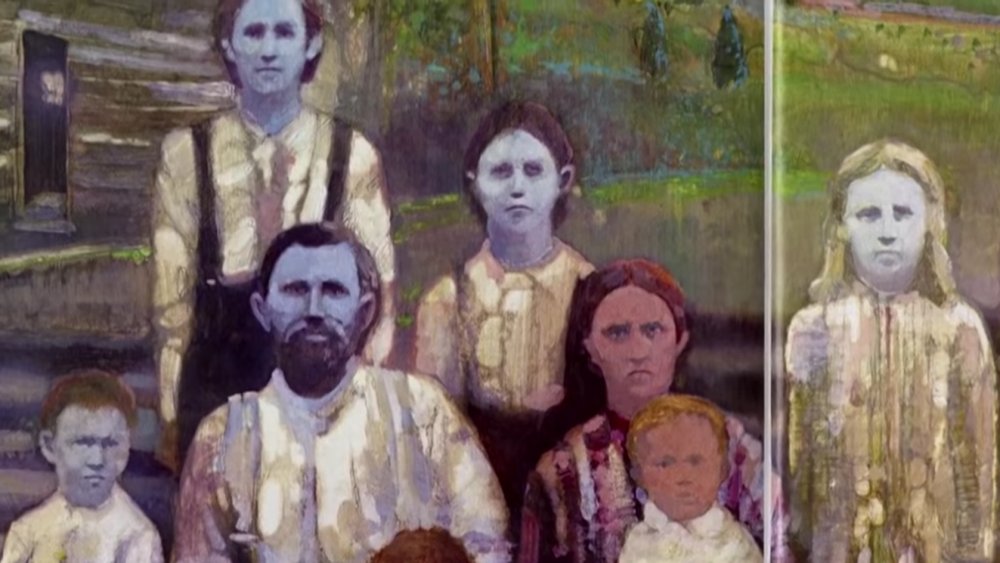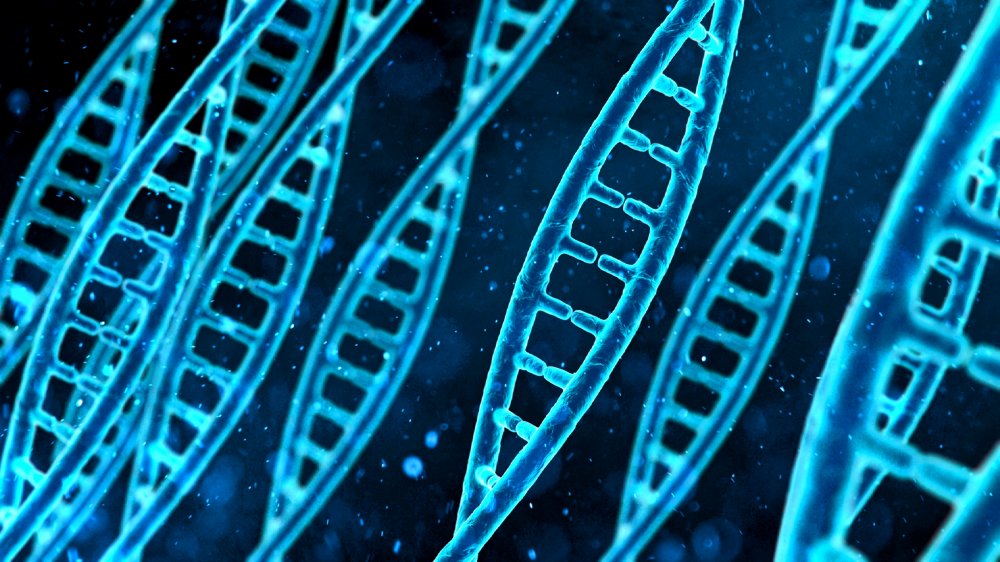The Bizarre Story Of The Blue-Skinned Family From Kentucky
In the 1960s, a hematologist in Lexington, Kentucky embarked on a bizarre quest. As ABC details, Dr. Madison Cawein III set out to find a group of blue people. At first blush, this mission smacks pure lunacy, or even purer cocaine. Did this guy get high and convince himself he was Gargamel searching for Smurfs? Shockingly not. For over a century, the Bluegrass State had been home to blue humans with chocolate-colored blood pumping through their veins.
In Hazard, Kentucky, Cawein encountered a nurse who said she once had a patient with skin that bordered on indigo. She was related to the fabled "blue Fugates of Troublesome Creek." Their time in Kentucky started with the blue-skinned Martin Fugate, who moved to Troublesome Creek in 1820. His color resulted from the expression of a recessive gene that creates an excessive amount of methemoglobin, which is a type of hemoglobin. Hemoglobin transports oxygen throughout the body by way of red blood cells. However, Martin's blood suffered from methemoglobinemia, which blocks the oxygen, turning his skin blue.
Until you're blue in the face and everywhere else
Martin Fugate tied the knot with a woman named Elizabeth Smith, who happened to carry the same recessive gene as he did, according to ABC. Four of their seven kids had blue skin. It marked the start of multiple families. But that was only the beginning. The Fugates lived in relative isolation, so like the royals, relatives married each other. That limited gene pool created more and more blue babies. And as you might expect, their condition gave many of them a case of the emotional blues.
Some descendants of the blue Fugates have expressed embarrassment over their unusual hue. And that's far from the only concern. While mild forms of methemoglobinemia pose no health risk, in more extreme cases, the condition causes respiratory issues. A blue man from Oklahoma named Kerry Green told ABC in 2012, "I don't breathe very well. The red blood cells don't give me enough oxygen." He believed he inherited the condition from a father he never knew, but didn't know of a genetic link to the Fugates.

